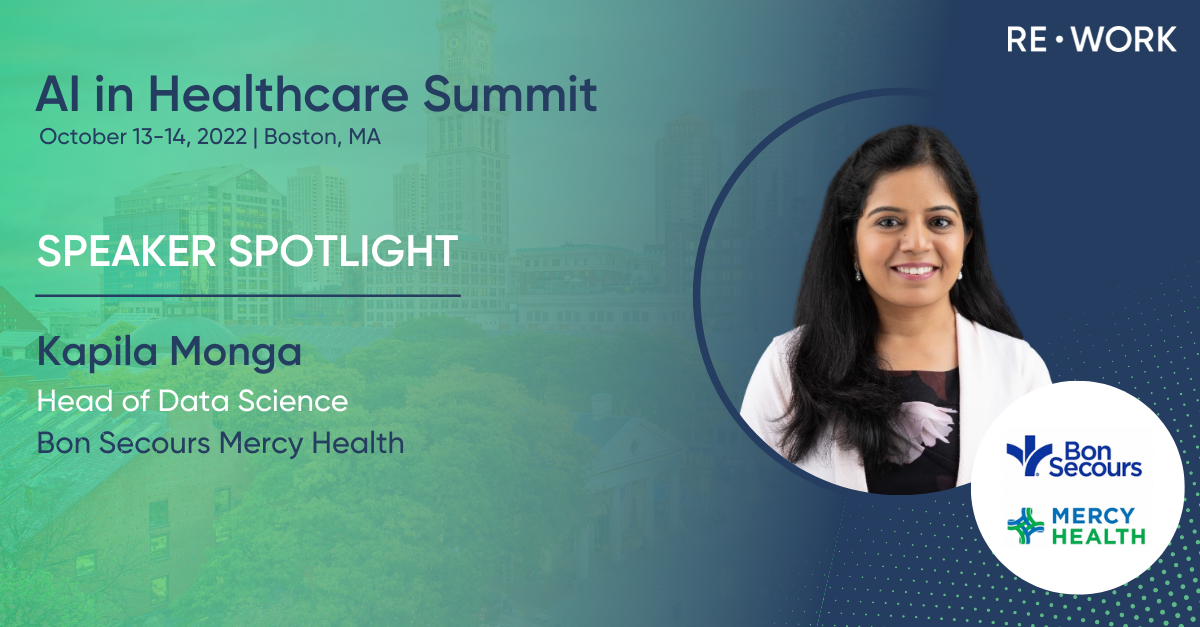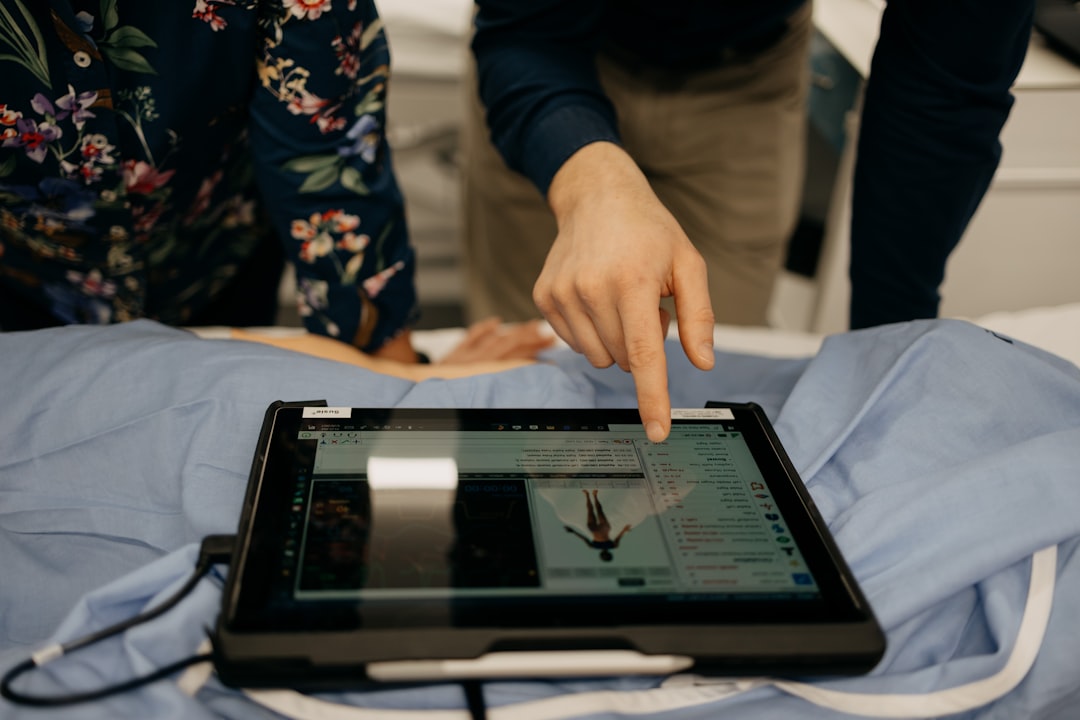The advancements in Artificial Intelligence in the healthcare industry are being used to diagnose, treat, and prevent illnesses. Years of technological development and innovation have prepared AI to remain a key player in the healthcare industry for years to come. Ahead of the RE•WORK - AI in Healthcare Summit Boston, we asked Kapila Monga, Head of Data Science at Bon Secours Mercy Health her thoughts on the topic. Here's what she had to say:
What do you think is the most important advancement for AI in healthcare?
"The advances in deep learning including improvement in access and maturity of deep learning APIs, in my view have opened the doors of widespread AI usage in Healthcare. Deep learning has enabled pull OCR, Computer vision and Natural language processing from just boardroom vision board conversations to actual business applications and clinical workflows. The plethora of text data in EMR systems was ripe to be harnessed for valuable insights through use of NLP techniques. Computer vision and its ability to process image data has enabled augmented intelligence for radiologists (a critical application for AI in healthcare). Usage of OCR technologies is making several workflows in revenue cycle management, supply chain and HR automated and efficient, having a positive impact on health system's bottom line."
What do you think will be AI's crowning achievement for healthcare and patient outcomes?
"According to CDC, about six in ten adults in the US have a chronic disease and four in ten adults have two or more chronic diseases. Chronic diseases are also leading cause of death and disability in the US, and are leading drivers of nation's $ 3.8 Trillion in Annual Health Care Costs. AI's crowning achievement for healthcare and patient outcomes would be to delay the onset and slower the progression of chronic diseases. The combination of explosive growth in compute power, technology enabling remote patient monitoring, advancements in deep learning and effective usage of digital tools for right outreach at the right time will lay the foundation for achieving this mammoth task. Ability to create "whole-person" views about patients and ability to recognize and account for health inequities will be a key enabler in this objective."

How engrained will AI be in the clinical workflows 5 to 10 years from now? What will some future trends be then?
"Need of integrating AI in clinical workflows is well understood in the industry even today. However, today the efforts in the said direction are marred because not all clinical workflows are well defined / can be well defined and crisp. There are system and people related aspects that prevent standardization of several clinical workflows. Another key aspect is that clinical workflows and AI are both not so easy to comprehend topics, and for the two to be seamlessly integrated the AI specialists and the hospital administrators / front line caregivers need to be able to meaningfully talk to each other and understand each other's language. There is work needed in this direction. Within 5 to 10 years both these challenges would have been addressed. We would also have learned some good lessons, through experience and example, on engraining AI in clinical workflows. Within 5 to 10 years I expect that AI would start becoming an integral part of clinical workflows i.e. basically like a key component of clinical workflows. Clinical workflows without embedded AI would be becoming a thing of past in 5 to 10 years from now."
What are you most looking forward to while speaking at the AI Healthcare summit?
"I am looking forward to learn from experience of other SMEs and industry leaders about the lessons they learned while implementing AI in their organizations."
Want to learn more?
Kapila will be speaking at the upcoming AI in Healthcare Summit on October 13-14, 2022, in Boston, MA. Join her and many other AI/ML and Deep Learning experts to learn more about the latest trends and opportunities in healthcare.
Early Bird Passes end on Friday, September 2, so book your place today.
For more information contact [email protected].
